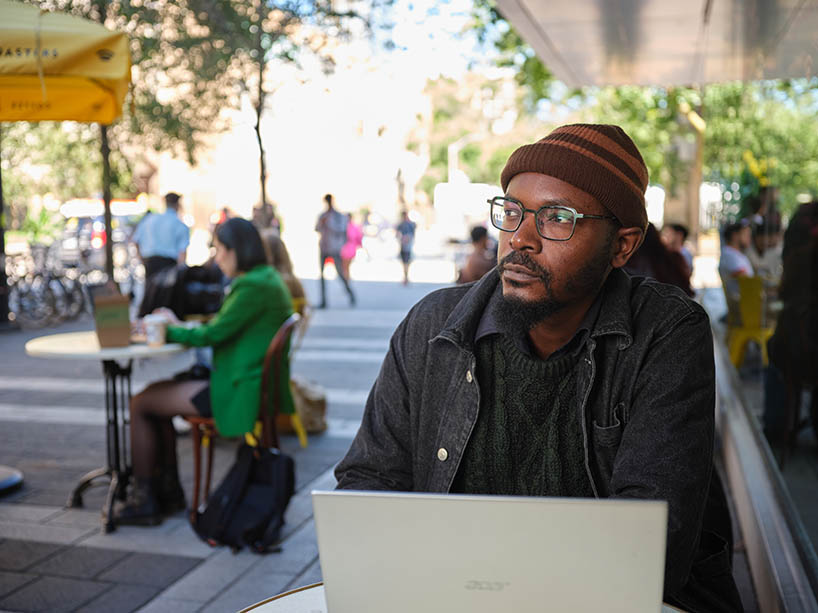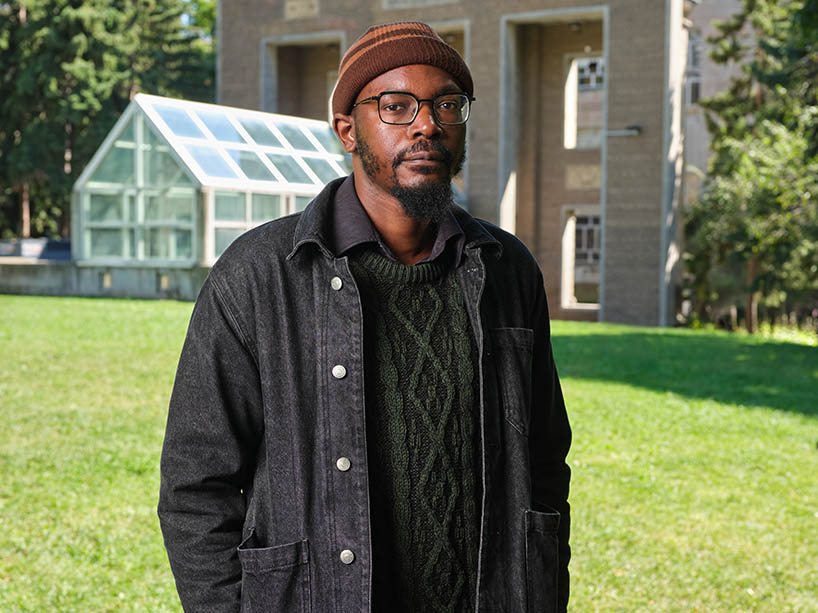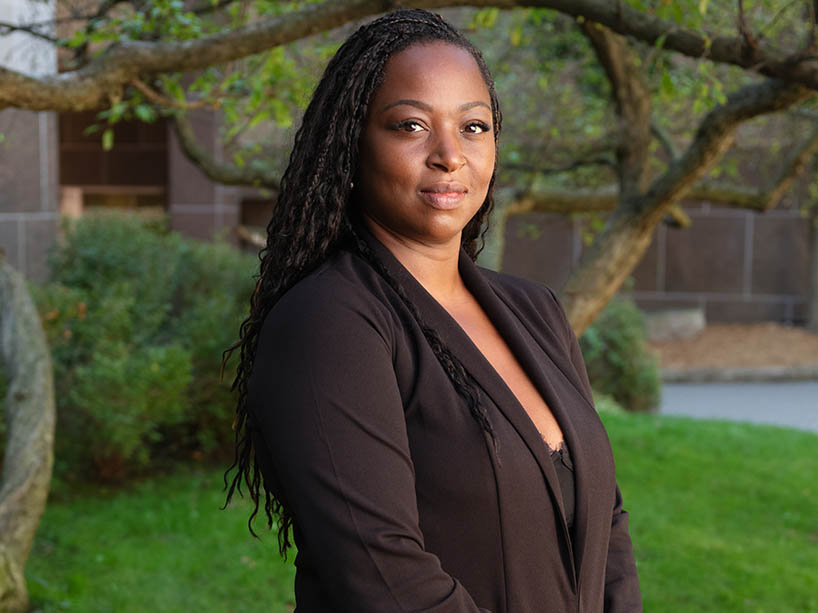Mature students begin university with life experience

Mature students starting their academic journeys this year bring a wealth of experience and hopes for the future. Victor Tubuseeke took advantage of a unique bridging program at TMU that made higher education accessible. (Photos: Harry Choi)
This month marks a new chapter for two mature students, Victor Tubuseeke and Victoria Akinola. They are in their first year at TMU thanks to a bridging program offered through the Chang School of Continuing Education.
Victor Tubuseeke, 36, can finally focus on his passion for writing as he begins an English degree at TMU. He settled in Canada in November 2021 by way of Kenya, where he sought refuge from persecution in his native country, Uganda.
In 2013, Uganda passed the Anti-Homosexuality Act, prohibiting same-sex relations, with harsh penalties like life imprisonment.The act was condemned internationally with the United Nations (external link) stating it would sanction and reinforce stigma and prejudice.
“The government forced us out of the country, making it impossible and very dangerous to remain living there,” says Tubuseeke.
The law also obligated people to report those who breached the new laws.
“It became much more punitive,” he says. “If you were my employer, you were required to report me if you knew that I was gay, otherwise you could be charged as an accomplice. The same if you were my landlord.”

Victor Tubuseeke immigrated to Canada by way of Kenya to escape persecution in his home country, Uganda. He begins an English degree at TMU this year.
The law created an unsafe environment for members the 2SLGBTQ+ community. Most of his friends had left the country or were imprisoned, when Tubuseeke decided to flee in 2015 as physical harm became a constant threat.
Once in Kenya, he began the process of finding a permanent home. Eventually, he was able to start over in Canada, with plans to continue his education. Unfortunately, many programs didn’t recognize his previous education, which would have meant starting from square one.
“One of the programs I researched had a GED completion requirement which didn't make sense because I had been in a college journalism program in Kenya.”
Then he found the Spanning the Gaps bridging program offered at The Chang School of Continuing Education at TMU. This program helps students 21 and older who face barriers earning the credits they need to access higher education in Canada.
“Spanning the Gaps was a godsend because they took the education I already had and used that as a starting point towards admission to a full-fledged university program.”
Tubuseeke is passionate about writing and aspires to contribute to literature. He also plans to return to East Africa where he hopes to inspire the next generation of writers and thinkers.
“I feel the English program will cut across many fields,” says Tubuseeke. “I know it's not going to be easy but I'm prepared for the work. This is the right time and the right place.”
“The opportunity to access and pursue postsecondary education significantly changes lives,” says Paula Green, Spanning the Gaps program director. “It can improve socio-economic stability and personal earning potential, and can lead to positive future generational impact.”
Spanning the Gaps offers life-transforming pathways to higher education
Self-coaching: mature student works to fulfil aspirations
Victoria Akinola, 44, has worked as a motivational coach inspiring others to achieve greatness in their lives. She’s now striving to achieve her own dreams in the social work program at TMU.
Akinola says the Spanning the Gaps program gave her the support she needed to access university.
“I did not realize how much support I could plug into,” says Akinola, a single mom with five dependents. “I thought I had to be the support. I was the one taking care of everybody.”

Victoria Akinola has worked as a motivational speaker, coaching others. Through the Spanning the Gaps program, she was able to find the support and encouragement she needed to pursue her biggest dream, higher education.
Akinola had reached out to the program administrators a decade earlier to learn more.
“I called Hirma Leon [departmental assistant at Spanning the Gaps] 10 years later and she was like, ‘Victoria, this is your family’—can you imagine an institution using that word?”
Akinola’s application was resubmitted by the administrators immediately. “I was right back where I left off in the Spanning the Gaps program,” she says. “I completed the program with a 4.0 in my last class.”
Akinola credits the program with helping to expand her mind and sharpen her critical thinking skills.
“I could always see social barriers and systemic issues,” she says. “My question was always, ‘Who's doing this? Who has the power and why?’”
Akinola’s compassion and concern for others has ignited a determination to tackle social problems. She aims to challenge and change broken systems.
“Social policy is directly where I'm headed,” she says. “I want to work at supporting efforts towards representation of every single member of society.”
The transformative power of higher education
Thanks to generous donations, Spanning the Gaps is entirely free for students. The program goes beyond academics. It addresses non-academic barriers like mental health issues, housing instability and financial precarity.
By providing access to university, this bridging program boosts representation from equity-deserving groups and enriches the campus with diverse perspectives and experiences that reflect our world.
“Once students graduate from the program we continue to monitor their academic progress and provide some financial support, to ensure that they can pursue their academic dreams and obtain their undergraduate degrees,” says Green.
Related stories:
